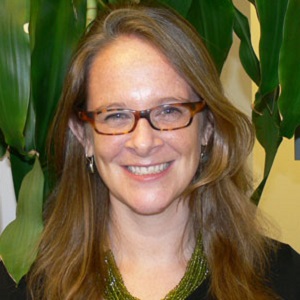 by Hilary Rhodes, Senior Research and Evaluation Officer, The Wallace Foundation
by Hilary Rhodes, Senior Research and Evaluation Officer, The Wallace Foundation
Since emerging as a national funder in the 1990s, The Wallace Foundation has supported efforts to expand access to high-quality afterschool for disadvantaged children and teens in urban areas across the country. The investments, which have included funding for leading programs, independent research, and communications to share key lessons, are based on the belief that young people need a variety of high-quality opportunities to support their development into successful adults.
Test scores are important because they measure knowledge. But parents, employers and those who work with young people have long understood that it takes more than strong math and reading skills to succeed in life. Success also depends on a range of attributes that society values – behaviors like persistence and conscientiousness; attitudes like self-confidence and openness to new ideas; and abilities like self-control, time management and goal-setting.
We know that these social and emotional competencies predict and shape lifelong outcomes including academic performance and work outcomes. But while we know that these factors matter, we recognize that there’s a great deal we don’t yet understand. Which factors matter most for children to become successful adults? How and when do we develop them? How do we measure them?
These questions aren’t simply of academic importance. As interest expands in this area – as the growing number of books and articles attest – they matter to a broad range of others. Those include afterschool leaders who are struggling to figure out what factors to focus their programs on; funders who want to help disadvantaged youth succeed; education policymakers who would like to know whether progress in these areas can be measured.
To help provide answers, in 2013, Wallace commissioned the University of Chicago Consortium on Chicago School Research (UChicago CCSR) to analyze and synthesize research, expert opinion and practical insights from across multiple fields. We asked the team of researchers to identify the critical factors young people need to become successful adults and examine how the answer varies for different age groups of children and youth. We also wanted to learn what is known about how and when they can be influenced.
In pursuit of these goals, the team has focused on key, underlying concepts, first by elucidating what we mean by “success” - integrated identity and agency– and then investigating the underlying drivers of success, the foundational components and core competencies that propel a child’s growth towards this vision. By integrated identity, the researchers mean a cohesive sense of self, and by agency, they mean taking an active and intentional role to shape and manage one’s life.
One of the many things that the team’s work has revealed is that much of the growing interest in “noncognitive” factors reflects both a reawakening and deepening understanding of the importance of positive youth development. The concept is not a new one but may have gotten submerged in our focus on test scores and high-stakes accountability. While tests can represent meaningful growth (or lack thereof), there is so much more involved in becoming a successful person: we know that what (usually) doesn’t get measured currently really does matter. As UChicago CCSR discusses in the report, positive youth development comprises (although isn’t always credited with) academic achievement, which test scores seek to measure. It also involves much more including: self-regulation, strategies and skills, and mindsets. No single component - not even academic achievement - drives this development; instead, a continual interplay of these foundational components and developing core competencies is essential for leading to eventual success.
We have also learned from the team that youth development isn’t something that “happens” in a day, a month or a year. It’s a continual process. Young people are always developing regardless of the intentions of the adults and peers with whom they are interacting. Every experience and relationship influences what young people know, how they feel, and who they become. The experiences in schools, afterschool, at home and in the community are all opportunities to nurture them. And critically, the responsibility for improving the prospects of disadvantaged young people is shared by all adults in their lives. When we embrace that responsibility and provide intentional, age-appropriate experiences and support youth’s meaning making of them, we can foster positive youth development for all.
Wallace and the UChicago CCSR will release the report in May. We don’t expect it to answer all questions, or be a silver bullet. We do hope that it provides a credible, well-researched platform for debate, further discussion and more learning. If we can do that, we will be a step closer to thinking through how to provide positive developmental experiences for all of our youth.
Over time, this developing field would benefit from terminological clarity, as it would help ensure that programs use comparable measures that help all of us benefit from a coherent knowledge base. But as the saying goes, we need to walk before we can run. And we hope that the UChicago CCSR research helps us begin by focusing on a set of underlying key concepts. If we can agree on those, we can begin to not only make progress on terminology, but also become more effective in helping afterschool providers, schools and parents promote the skills, knowledge, attitudes and behaviors that will help young people succeed.
